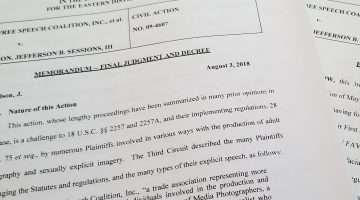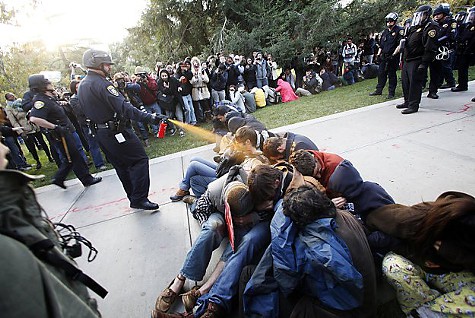 PORTLAND, OR – The United States Court of Appeals for the Ninth Circuit has issued a ruling that may make it more difficult for people who believe they have been publicly defamed to sue for damages.
PORTLAND, OR – The United States Court of Appeals for the Ninth Circuit has issued a ruling that may make it more difficult for people who believe they have been publicly defamed to sue for damages.
At issue is the extent to which, in this case, a radio host known for rude, off-the-cuff, hyperbolic remarks could be held liable for derogatory comments he made on the air that could not reasonably be
construed by his listeners to be facual, whether they were true or not.
In upholding a district court ruling in Gardner v. Martino that dismissed the case without prejudice under Oregon’s anti-SLAPP (“Strategic Lawsuit Against Public Participation”) statute, which provides for the early dismissal of meritless lawsuits aimed at chilling expression through time-consuming litigation, the Circuit court found in that the defamation claim could be brought because the speech in question was so exaggerated that it could not cause actual damages. The facts of each case will need to be assessed by the court before a determination can be made whether a defamation claim can be brought or not, however.
In Gardner, the alleged defamation took place during a call in to The Tom Martino Show, a nationally-syndicated radio talk show that airs telephone conversations between Martino and callers seeking help with their consumer problems.
The caller was engaged in a dispute over a supposedly defective product bought from the Appellants, who own a retail store located in Boring, Oregon, and recounted her experience to Martino on the air. While still live, the show’s producer called the store to get its side of the story, but was told by the Appellants that they had no comment and that there was nothing they could do for the customer, who needed to contact the manufacturer.
“So, we called the manufacturer – Polaris Industries,” Martino said, on the air. “They said she has to go through the dealer. Now listen carefully. She has to go through the dealer. The dealer says she has to go through the manufacturer. Mt. Hood Polaris, Polaris Industries equals sucks. Why? Because she has nowhere to go. Ping, pong [clicking noises] Polaris Industries, Mt. Hood Polaris. I urge you to let them know you will never buy a Polaris product knowing that they treat people like this.”
The store sued Martino for defamation for making those and other comments. In upholding the lower court ruling, the Circuit court referenced several decision they had previously made that address defamation claims and the standards that should be applied.
“In Unelko Corp. v. Rooney, 912 F.2d 1049, 1053 (9th Cir. 1990), we held that the threshold question after Milkovich in a defamation claim is “whether a reasonable fact finder could conclude that the contested statement implies an assertion of objective fact. If the answer is no, the claim is foreclosed by the First Amendment. We use a three-part test to resolve this question: (1) whether the general tenor of the entire work negates the impression that the defendant was asserting an objective fact, (2) whether the defendant used figurative or hyperbolic language that negates the impression,and (3) whether the statement in question is susceptible of being proved true or false.”
The Court further commented, “A review of the context in which Martino made his comments, “they’re lying to you,” and “Will they admit to us that they l . . . they went back on their word?” demonstrates that these statements were not assertions of fact. The Tom Martino Show is a radio talk show program that contains many of the elements that would reduce the audience’s expectation of learning an objective fact: drama, hyperbolic language, an opinionated and arrogant host, and heated controversy.”
In short, the context in which presumably-defamatory remarks are made makes all the difference, as does the basis of understanding on which the remarks are made. Had the Appellants agreed to call in to the show and set the record straight, and had Martino still made the same comments, the outcome of the case might have been very different.











No Comment